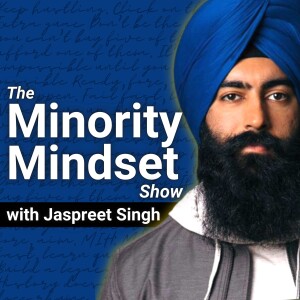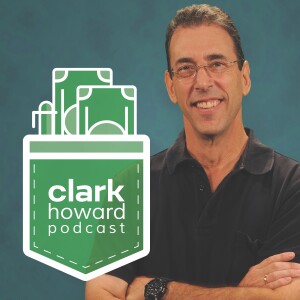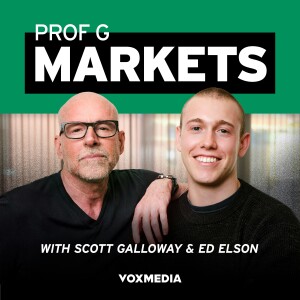

The Desi VC with Akash Bhat
https://anchor.fm/s/db9d322c/podcast/rssEpisode List

E155: How 2016 US Election Inspired a Billion Dollar Startup | Abhishek Agrawal (CEO, Material Security)
In 2016, Russian hackers broke into John Podesta’s Gmail during the US election. That single breach exposed how vulnerable email really is – and it directly inspired a billion-dollar cybersecurity startup.At the time, even the most powerful people in the world couldn’t fully secure their inboxes. Once hackers got access, there was nothing stopping them from reading everything: drafts, attachments and sensitive documents. Instead of trying to prevent email hacks, three ex-Dropbox engineers — Abhishek Agrawal, Ryan Noon, and Chris Park — asked a better question: What if you assumed the breach would happen, and protected the inbox anyway?Material Security built a powerful layer on top of Microsoft 365 and Google Workspace, locking down sensitive emails, verifying identity before access, and giving security teams real visibility — all without requiring a migration.In this episode, I sit down with Abhishek Agrawal, Co-founder & CEO of Material Security. We dive into their journey from pre-idea validation to scaling to a billion dollar valuation in about 5 years, lessons in management and leadership, and most importantly understand how Material Security is redefining email security for enterprises. If you're starting out or searching for your billion-dollar idea, this is a masterclass on going from zero to scale.⏳ Timestamps:Trailer (00:00) Intro (01:39)How Material Security began? (03:30)Why and how did the team visualize exit scenarios? (09:45)What did their pivot feel like? (11:58)How they used feedback to create their product (24:51)How did they deal with rejections? (26:15)How did the early version of their product look like? (33:44)Did they consider changing ICPs? (38:17)Was it easy to convince investors? (40:46)How did the internal mindset shift feel like? (50:51)What specific shifts did Abhishek have to bring in? (57:15)What are the things Abhishek would do differently, if starting now? (01:07:17)What’s Abhishek’s advice to his younger self? (01:24:01)🎥 Subscribe to see watch more unfiltered, unscripted conversations that will inspire, educate, and entertain!Support the podcast:🔗 SUBSCRIBE on YouTube🎧 Follow us on Spotify📸 Follow us on Instagram🐦 Follow us on Twitter/X💼 Follow us on LinkedIn🎵 Follow us on TikTok💌 BTS content on Substack

E154: Why India Is THE Leading Emerging Market for Public Investing | Kevin Carter (Founder & CIO, EMQQ Global)
Kevin Carter is the Founder & Chief Investment Officer of EMQQ Global, a San Francisco based investment management and research firm focused on providing investors access to the fast growing Emerging and Frontier Markets technology sector.EMQQ Global invests in publicly traded internet and ecommerce companies operating in 50+ countries, including India, China, Brazil, Indonesia, Nigeria, Egypt, Mexico, Vietnam, and Turkey. Through ETFs listed across US, Europe, and Asia, the fund helps investors access the digital consumer revolution reshaping global markets.US investors can tap into this opportunity via three investment strategies:EMQQ: Emerging Markets Internet & EcommerceFMQQ: Ex-China Emerging Markets Internet & EcommerceINQQ: India Internet & EcommercePrior to EMQQ, Kevin was the Founder & CEO of AlphaShares, an investment firm offering five Emerging Markets ETFs in partnership with Guggenheim Investments. Previously, Kevin was the Founder & CEO of Active Index Advisors acquired by Natixis in 2005 and the Founder & CEO of eInvesting acquired by ETRADE in 2000.In this episode, Kevin outlines how India’s massive, young population, business-friendly reforms in recent years, and world-class education system are fueling rapid growth. He breaks down why India is uniquely positioned to lead the next wave of digital consumption—and why now is the time for investors to pay attention. From mobile payments to food delivery and online education, India’s tech ecosystem is scaling faster than ever, creating unprecedented investment opportunities.TimestampsOpening trailer (00:00)Meet Kevin: intro to the episode (01:46)How do you break into public market investing? (02:28)How do people actually invest in public markets? (04:58)Is investing in emerging markets too risky? (11:04)What drives investors toward emerging markets? (17:05)What exactly is an emerging market? (19:35)When did India become an attractive market? (24:00)What happens after you invest in an emerging market? (31:15)How India stands out from other emerging markets (38:36)The future of India’s public markets (51:30)How investors can help shape India’s industries (58:38)Advice Kevin would give his younger self (1:07:00)Kevin’s biggest learnings from investing in India (1:10:43)Final thoughts (1:13:51)🎥 Subscribe to see watch more unfiltered, unscripted conversations that will inspire, educate, and entertain!Support the podcast:🔗 SUBSCRIBE on YouTube🎧 Follow us on Spotify📸 Follow us on Instagram🐦 Follow us on Twitter/X💼 Follow us on LinkedIn🎵 Follow us on TikTok💌 BTS content on Substack

E153: 7 Exits in 10 years – How To Win US Market | Arun Penmetsa (Partner, Storm Ventures)
Arun Penmetsa is a Partner at Storm Ventures, an early-stage venture capital firm focused on Enterprise software companies. He invests primarily in SaaS, Security, and Digital Health startups. Before joining Storm, Arun held product and engineering roles at Oracle and Google, where he built enterprise software solutions at scale.Arun is deeply passionate about the intersection of healthcare and technology. In addition to investing in US-based startups, he actively advises several healthcare groups in India on technology and population health. His portfolio includes successful exits such as Airgap (acquired by Zscaler), Dasera (acquired by Netskope), Limbix (acquired by Big Health), MyAlly (acquired by Phenom), Rallyteam (acquired by Workday), Trustar (acquired by Splunk), and 4me (acquired by PSG).In today’s episode, we talk about his journey from building software at tech giants to backing category-defining startups across security and healthcare. Arun shares what he looks for in founders, lessons from his most successful exits, and why he believes healthcare is one of the most impactful sectors to invest in.Timestamps:* Trailer (00:00)* Introduction (01:26)* Arun's motivation behind getting into VC (03:41)* What goes into picking the right fund for pursuing VC as a career (08:58)* What it takes to become an investor (15:21)* Arun's personal style of being an investor (18:03)* How to find if you are a good fit for a company (21:36)* How does operator advisor advise portfolio companies at Storm Ventures (27:17)* How the best investors who have been operators mould their persona (32:38)* How Arun's personality has evolved as an investor (37:52)* Why communication is important in VC (41:01)* What the best performing portfolio companies at Storm Ventures did well (43:48)* Why founders should not hire for CV (47:57)How the education system has impacted the working culture (50:45)* Why public companies switch CEOs before going public (53:36)* What founders need to do before entering the US market (55:07)* Arun's advice for the younger generation (1:04:16)* Conclusion (1:05:18)🎥 Subscribe to watch more unfiltered, unscripted conversations that will inspire, educate, and entertain!Support the podcast:🔗 SUBSCRIBE on YouTube🎧 Follow us on Spotify📸 Follow us on Instagram🐦 Follow us on Twitter/X💼 Follow us on LinkedIn🎵 Follow us on TikTok💌 BTS content on Substack

E152: Near Bankruptcy to $250M ARR | Rohan Nayak (CEO, Pocket FM)
Rohan Nayak is the Co-founder & CEO of Pocket FM, a company redefining audio storytelling for the world.While we’ve recently been publishing video episodes, this one’s a throwback to pure audio. Rohan had to travel unexpectedly, but we didn’t want to miss the chance to capture his insights on building one of India's fastest-growing consumer tech companies.Pocket FM is making waves globally — having recently raised $103 million in Series D funding, bringing total funding to $196.5 million, with backing from Lightspeed, Tanglin Venture Partners, Goodwater Capital, and Naver. With $150 million+ in ARR and 57% QoQ growth, they’re showing that audio isn’t just alive — it’s thriving.In today's episode, Rohan shares how building from India creates efficient growth playbooks, the nuances of global GTM, and why the future of content might sound a lot more like audio than you think.⌛ Timestamps:Motivation behind starting a company (3:55)Why Rohan chose audio as a medium (5:20)Early reactions to Pocket FM’s vision (12:20)How audio is transforming short-form storytelling (22:10)Why audio has a higher creative bar than video (24:30)Localization and Pocket FM’s global expansion plan (25:40)The role of A/B testing in content development (32:25)How A/B testing works specifically for audio (37:20)Audio’s ability to transcend cultural boundaries (39:39)How Pocket FM finds breakout "blockbuster" shows (40:40)Why US-origin stories scale better globally (42:25)What content categories work—and which don’t (43:00)Top 3 learnings from going to market in the US (43:52)Mistakes Pocket FM made in their GTM journey (47:32)How culture shapes global go-to-market strategy (50:35)How Pocket FM is using AI to enhance storytelling (54:50)Rohan’s five-year vision for Pocket FM (1:01:35)Why AI will supercharge the next generation of creators (1:03:39)Personal lessons Rohan has learned as a founder (1:07:00)What keeps him grounded — the concept of "Basecamp" (1:11:15)🎥 Subscribe to watch more unfiltered, unscripted conversations that will inspire, educate, and entertain!Support the podcast:🔗 SUBSCRIBE on YouTube🎧 Follow us on Spotify📸 Follow us on Instagram🐦 Follow us on Twitter/X💼 Follow us on LinkedIn🎵 Follow us on TikTok💌 BTS content on Substack

E151: Leaving VC to Build an AI Startup | Brij Bhasin (Rebright VC / Snow Mountain AI)
Brij Bhasin is a longtime investor turned founder and the co-founder & CEO of Snow Mountain AI, a company focused on automating business processes in finance, compliance, and legal through AI.Before founding Snow Mountain, Brij was a General Partner at Rebright Partners, and earlier helped launch GSF Accelerator, one of India’s first and largest startup accelerators. He was also part of the early team at Little Eye Labs, which was acquired by Facebook in 2014, and has over a decade of experience building tech products across startups in India and the US.In this episode, Brij shares why he left a successful venture career to become a founder, the challenges of building an AI startup from India for global markets and how he’s navigating entrepreneurship after a long break. This conversation is a must-listen for VCs considering a shift to operating roles, and for founders building deep-tech or AI startups out of India.⌛ Timestamps Trailer (00:00)Brij's journey from 10 years of VC to a startup founder (01:48)What has Brij learnt being an investor for 10 years (04:24)How to build a startup in 2025 (Investor's POV) (05:53)Investor's definition of "velocity" and its importance (08:54)Medibuddy's case study (10:48)Importance of long-term view for a founder (13:43)PhonePe's case study (17:40)Monetary success, purpose, drive and teamwork (21:05)Difference between velocity and momentum (23:15)How do companies manage culture (29:41)Is quitting or pivoting bad? (35:25)What does it really mean to go from an investor to a founder? (48:58)Akash's strategic plan towards trademarking his company's logo (52:06)Thinking outside of the box (55:55)How easy it is to move from being an investor to a founder? (1:03:09)How difficult it is to raise capital as a founder who is a former investor? (1:07:40)What has Brij learnt about himself that surprised him yet transformed him? (1:11:41)Outro (1:15:56)🎥 Subscribe to watch more unfiltered, unscripted conversations that will inspire, educate, and entertain!Support the podcast:🔗 SUBSCRIBE on YouTube🎧 Follow us on Spotify📸 Follow us on Instagram🐦 Follow us on Twitter/X💼 Follow us on LinkedIn🎵 Follow us on TikTok💌 BTS content on Substack
Create Your Podcast In Minutes
- Full-featured podcast site
- Unlimited storage and bandwidth
- Comprehensive podcast stats
- Distribute to Apple Podcasts, Spotify, and more
- Make money with your podcast












